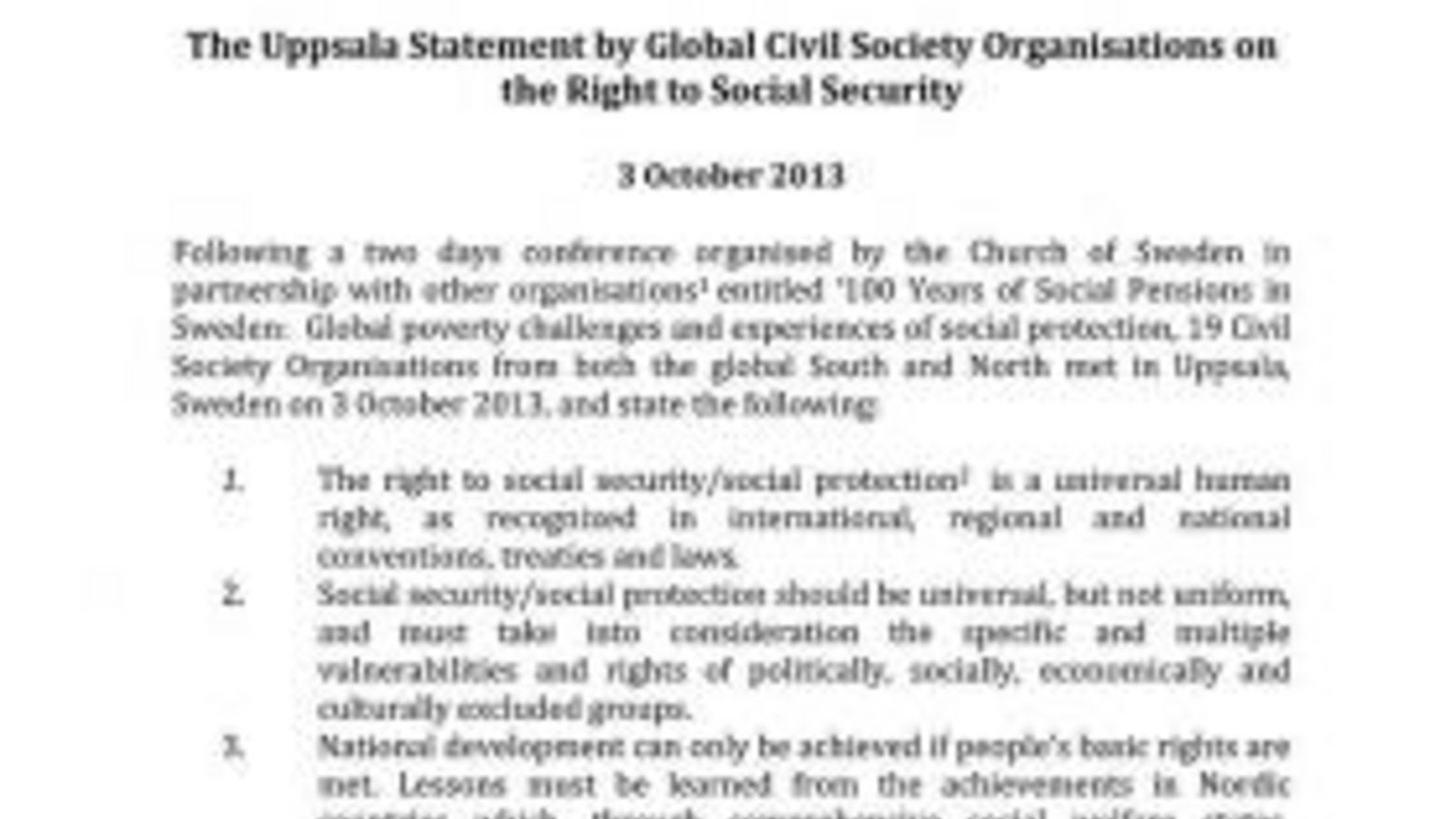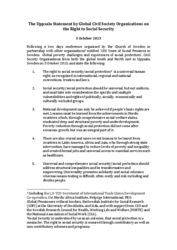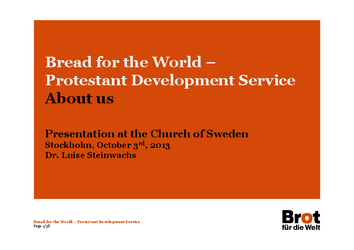Following a two days conference organised by the Church of Sweden in partnership with other organisations entitled ‘100 Years of Social Pensions in Sweden: Global poverty challenges and experiences of social protection', 19 Civil Society Organisations from both the global South and North - including Bread for the World - met in Uppsala, Sweden on 3 October 2013, and stated the following:
1. The right to social security/social protection is a universal human right, as recognized in international, regional and national conventions, treaties and laws. Social Security is understood by us as an outcome, that social protection is a means for. The right to social security is ensured through contributory as well as non-contributory schemes and programs.
2. Social security/social protection should be universal, but not uniform, and must take into consideration the specific and multiple vulnerabilities and rights of politically, socially, economically and culturally excluded groups.
3. National development can only be achieved if people’s basic rights are met. Lessons must be learned from the achievements in Nordic countries which, through comprehensive social welfare states, eradicated deep and structural poverty and underdevelopment. Poverty reduction through social protection did not come after economic growth but was an integral part of it.
4. There are also crucial and more recent lessons to be learnt from countries in Latin America, Africa and Asia, who through strong state intervention, have managed to reduce levels of poverty and inequality and created formal jobs and universal access to essential services such as healthcare.
5. Universal and comprehensive social security/social protection should address structural inequalities and be transformative and empowering. Universality promotes solidarity and social cohesion whereas means-testing is difficult, often costly and risk excluding and divides people.
6. States have the obligation to fulfill the right to social security/social protection and therefore should ensure the inclusion of diverse people in the conceptualization, design, implementation and monitoring of social security mechanisms to ensure that the specific needs of all these groups are respected and met.
7. The right to universal social security/social protection should be part of development and economic policies and transformative social agendas including international co-operation, of all countries and must specifically be included in the post-2015 sustainable development agenda.
8. States should ensure the right to social security/social protection as a legal, enforceable entitlement to all and should provide adequate budgetary allocations.
9. States should realize that the right to social security/social protection is essential for the realization of all other rights and for a life with dignity.
10. It is crucial for civil society to build inclusive and strategic alliances at all levels - national, regional and international, to achieve these rights.







